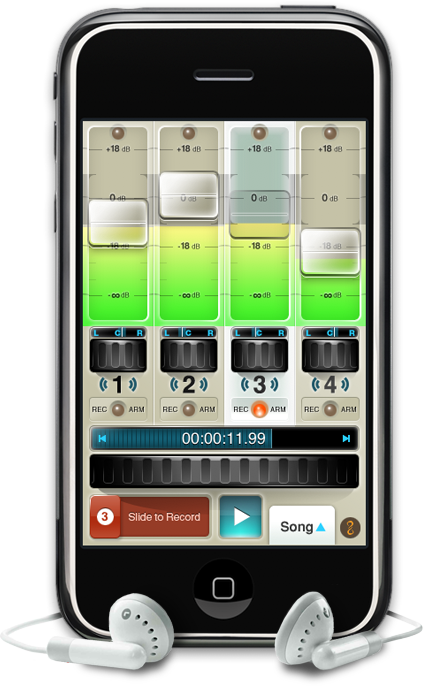The proposed bailout of GM, Ford, and Chrysler overlooks an important fact. The US has one of the most vibrant, dynamic, and efficient automobile industries in the world. It produces several million cars, trucks, and SUVs per year, employing (in 2006) 402,800 Americans at an average salary of $63,358. That’s vehicle assembly alone; the rest of the supply chain employs even more people and generates more income. It’s an industry to be proud of. Its products are among the best in the world.
Their names are Toyota, Honda, Nissan, BMW, Mercedes, Hyundai, Mazda, Mitsubishi, and Subaru.
Product blog update: Email replies to Backpack Newsroom Messages, Timepost project timer for Basecamp, etc.
Some recent posts at the 37signals Product Blog:
Backpack
New in Backpack: Email replies to Newsroom Messages
We introduced email-reply to messages and comments in Basecamp a few months ago. It’s been a huge hit. Today we’re excited to be able to print this new feature to Backpack.

Highrise
[Case study] How a home design and plan provider uses Highrise
“Highrise proves its self everyday when I receive an email or phone call with someone that I had been in correspondence with but had forgotten about. I quickly open Highrise and search their name in the nice fast search utility. This way it reminds me of their information and allows for a personalized phone call as well as eliminating the need of asking them to remind me who they are. Another way this helps me out is if my boss loses a phone message that I had provided him I still have a backup of the numbers, addresses, and any other information provided to me during the conversation.”
Basecamp
 [Case Study] Broadband Genie: “You name it, we manage it through Basecamp!”
[Case Study] Broadband Genie: “You name it, we manage it through Basecamp!”
“The biggest thing straight away was quite simply the ability to upload graphic designs, specifications and so on and have everybody comment on it in one place, then iterate and so on. Attempting this sort of thing with a large group via email is pretty much a non-starter and can end badly. What Basecamp gave us was a single place where everybody could see everything that was going on, and (just as importantly) a record of what had gone on previously.”
Timepost, project timer that integrates with Basecamp, now available for both Windows and Mac
Timepost is a project timer that automatically downloads projects and to-dos from Basecamp. Previously available only for Mac OS X, it is now available for Windows too.
Stop pretending
I’ve recently recognized a nasty coding habit I seem to be developing. It’s been developing for a few months now, and while I kick myself every time I discover myself doing it, the habit itself is remarkably hard to kick.
I’ve been working on enhancing our internal Queen Bee application, this time making it so we can more easily track the performance of our Job and Gig boards. The change itself is pretty straightforward, but I found that when it came time to build the actual UI, I got stuck.
I kept chasing my tail. I’d look at the existing reporting UI that we have for our other products, and then I’d start thinking what needed to change to adapt it for the Jobs/Gigs reports. That would then lead me to think about potential refactorings in the code needed to support the (hypothetical) UI changes. Thinking about the code refactorings would lead me back to the UI, where I would think some more about the visual impact of the code refactorings, and so I would go, loop after loop, ad nauseam.
It’s ironic that, even after nearly 4 years of drinking the Getting Real message almost every day, I’d get stuck in such a trap, because the solution really is to just stop pretending and make something. In my case, I had to sit down and just mock up the page, throw together some HTML with fake data in it, and see what it looked like. And it turned out that I didn’t need to change the existing UI or code much at all—the new stuff was actually independent enough that it stood almost completely on its own. Oh, the bitter, bitter irony! I had wasted almost two days worrying about a non-issue.
So, if you ever catch yourself playing mind games with your code, just stop and make something. Pretending is poison. Stop drinking it!

Pizza pie charts from The Economist’s “Get a World View” campaign. Philly pizzerias distributed the boxes which display pie charts with statistics related to world food distribution, emphasizing those used in pizza production (e.g. global wheat consumption, world cheese imports, arable crop land, etc.).
A complex system that works is invariably found to have evolved from a simple system that worked. A complex system designed from scratch never works and cannot be patched up to make it work. You have to start over, beginning with a working simple system.
John Gall

Who doesn’t want to play with this? Totally lickable UI. FourTrack.
Etymology: One
Etymology is fascinating to me. Most recently I was reading about the history of the word “one”. Have you ever wondered why it’s pronounced wun instead of rhyming with own? According to the sources I’ve read (including the awesome Online Etymology Dictionary), it originally did. In fact, the word only still uses that pronunciation, and derives from the same root. The change apparently began in the 14th century in southwestern England, and by the 18th century it was in common usage.
Related: did you know that the term “one night stand” was originally used in reference to theater performance? It wasn’t until the 1960’s that it was first used in a sexual sense. Also, “one-of-a-kind” was first used in the 1960’s as well. On the other hand, “one fell swoop” was first used by Shakespeare, in Macbeth.
Defensive design: Magnetic zones on the unibody MacBook
To access the RAM slots in a unibody MacBook you must first remove the back plate—a thin piece of aluminum attached by eight tiny screws. Half of the screws are hidden beneath the battery cover, and each one is surrounded by a recessed magnetic zone. The purpose of these zones is ostensibly to help keep the battery cover seamlessly attached to the case.

But removing the screws made it clear that the magnetic zones serve a second function. When my screwdriver slipped, the screw didn’t fall into the depths of the case. Instead, it flew right over to the magnet, and I was spared the pain of extracting a three-millimeter needle from an expensive electronic haystack.
It’s a perfect example of real-life defensive design: anticipate where your customers might slip up and try your best to keep them from doing it. Have you encountered any good defensive design lately?
So maybe a recession is a good time to start a startup. It’s hard to say whether advantages like lack of competition outweigh disadvantages like reluctant investors. But it doesn’t matter much either way. It’s the people that matter. And for a given set of people working on a given technology, the time to act is always now.
Paul Graham on Why to Start a Startup in a Bad Economy


